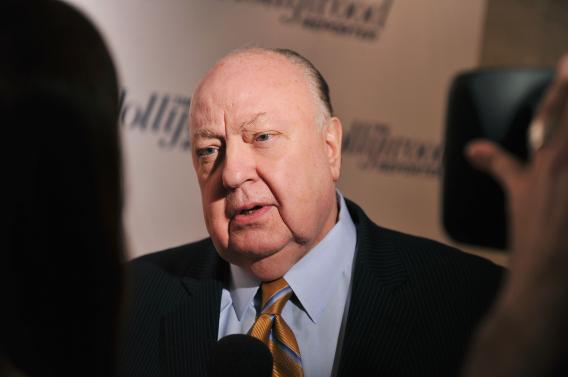The Washington Post went live late Monday night with a Bob Woodward-authored article that tells the story of how Fox News chairman Roger Ailes had one of his network’s national security correspondents deliver some unsolicited, off-the-record advice to Gen. David Petraeus in the spring of 2011.
In short, Fox News contributor Kathleen T. McFarland told Petraeus that her boss wanted the general to run for president, and that he was willing to do what he could to make such a run a success. (The slightly longer version of the message was that Ailes suggested that there was one Obama administration job that would be worth Petraeus’ time and effort: chairman of the Joint Chiefs of Staff. But if that wasn’t on the table—and it appears as though it wasn’t—he should wait six months to resign and then mount his GOP primary bid.)
And how does Woodward know all this? Because he got his hands on a recording of the off-the-record conversation that took place in Petraeus’ Kabul office. If that weren’t enough to get people talking, there’s also this nugget:
McFarland also said that Ailes—who had a decades-long career as a Republican political consultant, advising Richard M. Nixon, Ronald Reagan and George H.W. Bush—might resign as head of Fox to run a Petraeus presidential campaign. At one point, McFarland and Petraeus spoke about the possibility that Rupert Murdoch, the head of News Corp., which owns Fox News, would “bankroll” the campaign.
For his part, Ailes confirmed that he did send McFarland to make the basic pitch, but largely shook off the seriousness of it and denied he’d ever consider leaving his high-paying job to return to politics. “It was more of a joke, a wiseass way I have,” he told the paper on Monday. “I thought the Republican field [in the primaries] needed to be shaken up and Petraeus might be a good candidate.”
The Fox News chief likewise suggested that McFarland’s portrayal of her task as something of a covert operation was less than accurate. “It sounds like she thought she was on a secret mission in the Reagan administration,” Ailes said, adding that “she was way out of line” and that “it’s someone’s fantasy to make me a kingmaker.” Still, given Ailes’ history of reaching out to GOP power players behind closed doors, such denials aren’t likely to find much traction.
At the time McFarland delivered her boss’s message, Petraeus was only weeks away from being officially offered the position of CIA director. He’d go on to take that job, of course, only to lose it a little more than a year later as a result of the affair he had with his biographer, a revelation that brought his tenure as a national security golden boy to an end, at least temporarily. The WaPo story is an interesting one for a handful of reasons, not least of which is the additional data point it provides in regards to just how well-liked Petraeus was among the reporters who covered him.*
The most fascinating angle, however, may be the myriad What Ifs that are at play given the absolute chaos that would have occurred if news of Petraeus’ affair had broken while he was seeking the GOP nomination or, worse still, after he had won it. The political news cycle was nearly swallowed whole by the alleged sexual harassment claims against Herman Cain, who had only a fraction of the national profile of Petraeus.
Fortunately, that hypothetical world proved to be just that. Petraeus can be heard on the tape quickly shooting down the idea of a presidential run. His reasoning for staying on the political sidelines is all the more noteworthy knowing what we now do. “My wife would divorce me,” he said. “And I love my wife.”
The full WaPo article—complete with some other interesting tidbits about Petraeus’ close relationship with the news media, particularly Fox News—is here. The audio recording is here. Both are worth your time.
*On a more meta- level, there’s also the history that Woodward and Ailes share: It was the journalist’s reporting on Watergate that forced the eventual resignation of President Nixon, who Ailes helped get elected in 1968 as his first major foray into national politics. Four decades later and the two men are still making headlines.
